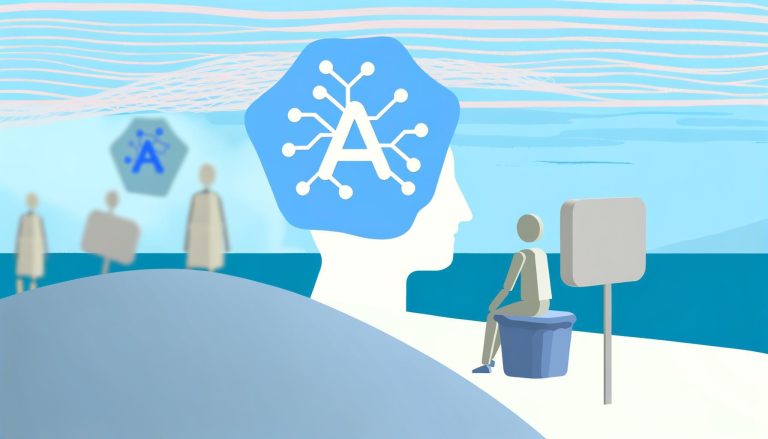Social media addiction has become a growing concern in today’s digital age. With the rise of platforms such as Facebook, Instagram, and Twitter, individuals, particularly younger generations, are spending a significant amount of time online. This compulsive behavior can lead to detrimental effects on mental and physical health. Fortunately, Artificial Intelligence (AI) is stepping up as a powerful tool in the battle against such addictions. In this article, we will explore the impact of AI on treating social media addiction, discussing the benefits, practical tips for using AI tools, and future implications.
Introduction to Social Media Addiction
Social media addiction is characterized by excessive and compulsive use of social media platforms, leading to disruptions in daily life, loss of productivity, and negative emotional impacts. It parallels other behavioral addictions such as gambling and can be fueled by the constant need for social validation, dopamine hits from notifications, and fear of missing out (FOMO).
The Role of AI in Treating Social Media Addiction
Identification and Monitoring
AI algorithms can analyze user behavior patterns to identify signs of social media addiction. By tracking time spent on platforms, frequency of use, and types of interactions, AI can flag potential addiction early.
- Behavior Analysis: AI systems can analyze browsing habits to determine unhealthy patterns.
- User Alerts: AI-powered tools can send notifications to users when excessive usage is detected.
Personalized Interventions
One of the most promising applications of AI is in designing personalized interventions to help users regain control over their social media use.
- Tailored Recommendations: AI can propose personalized content or activities to draw attention away from excessive social media use.
- Automated Reminders: Intelligent reminders can be set up to encourage breaks and healthy usage patterns.
Behavioral Therapy Integration
Combining AI with established therapeutic techniques can enhance treatment outcomes.
- Chatbots for Cognitive Behavioral Therapy (CBT): AI-powered chatbots can engage users in CBT sessions to address the root causes of addiction.
- Mood Tracking: AI can monitor users’ mood states through journaling apps, providing insights into their emotional well-being.
Benefits of Using AI for Treating Social Media Addiction
Accessibility and Convenience
AI tools are accessible around the clock and provide help directly on users’ devices, making it easier to seek support from anywhere at any time.
Data-Driven Insights
AI can analyze massive amounts of data to uncover insights into addiction patterns, which can lead to more effective intervention strategies.
Non-Judgmental Support
AI systems provide a non-judgmental space where users can openly seek help without fear of stigma or embarrassment.
Cost-Effectiveness
Utilizing AI can reduce the need for human intervention, making treatment more affordable and scalable.
Practical Tips for Using AI to Combat Social Media Addiction
Utilize Tracking Apps
Consider downloading apps that track screen time and social media usage. Many of these apps are AI-driven and provide comprehensive reports and recommendations.
Engage with AI Chatbots
Participate in sessions with AI chatbots that specialize in behavioral therapy. These can often be found within mental health apps.
Set Up Automated Reminders
Use tools that allow you to set up reminders to take breaks and limit usage during certain hours of the day.
Leverage Personalized Content Recommendations
Allow AI to recommend content that aligns with your interests outside of social media, such as exercise routines, educational videos, or mindfulness practices.
Participate in Online Communities
Join online communities or groups that use AI-driven platforms to support each other in overcoming social media addiction.
Future Implications of AI in Treating Social Media Addiction
As AI continues to evolve, its role in treating social media addiction is expected to become more sophisticated and effective. Anticipated developments include:
- Enhanced Personalization: More precise tailoring of interventions based on deeper behavioral insights.
- Integration with Wearable Devices: Using data from wearable tech to provide real-time feedback and interventions.
- Collaborative Efforts: Partnerships between AI developers, mental health professionals, and social media platforms to design integrated solutions.
Conclusion
Artificial Intelligence has the potential to significantly impact the treatment of social media addiction. From identifying early signs to providing personalized interventions and integrating with therapeutic methods, AI offers a multi-faceted approach to a complex problem. By leveraging AI tools and following practical tips, individuals can regain control over their social media habits and improve their mental health. As technology continues to advance, the collaboration between AI and mental health professionals will undoubtedly lead to more innovative and effective solutions for combating social media addiction.
For those looking to track their habits, monitor their moods, or set goals related to social media use, the Zenora App could offer valuable tools and insights, helping individuals make meaningful progress in managing their social media consumption.





